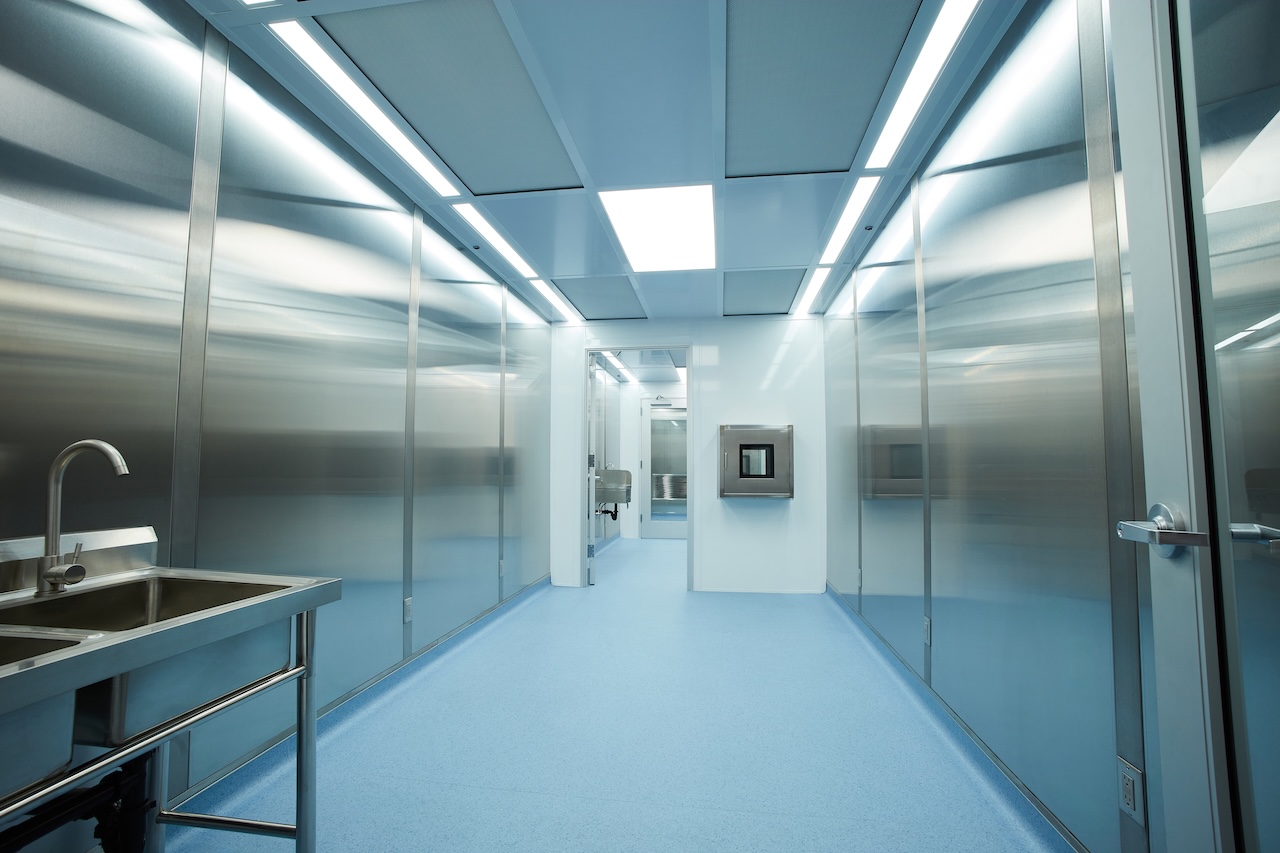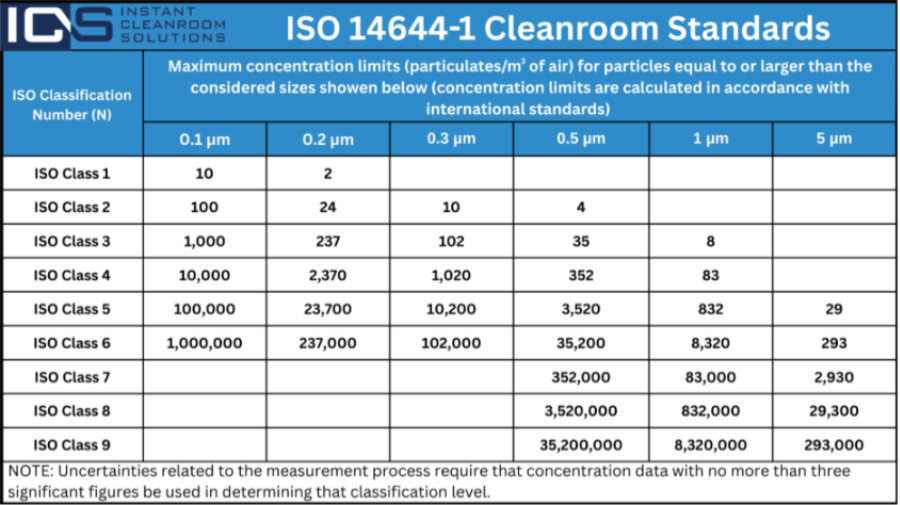
Understanding Air Filters
Arguably, the most important part of the cleanroom operation is the filtration system, which removes contaminants and particles from the environment. High-Efficiency Particulate Air (HEPA) and Ultra-Low Penetration Air (ULPA) filters are a primary part of this operation, removing particles from the air, including dust, smoke, plastic, metal debris, synthetic clothing fibers, makeup, hair, skin, and more. These filters can remove over 99.97% of particles from an HVAC air supply, which is part of how a room becomes a cleanroom. But how do you know which filter is right for your facility?
HEPA Filters
High-Efficiency Particulate Air (HEPA) filters are a standard for air filtration, designed to capture at least 99.97% of particles that are 0.3 μm in size. This high-efficiency rating also applies to particles both larger and smaller than 0.3 μm. HEPA Filters have a wide range of capabilities used in cleanrooms, from ISO 8 to ISO 5 across many industries, including pharmaceutical manufacturing, cell and gene therapy, medical device manufacturing, and more. Instant Cleanroom Solutions specializes in not only utilizing HEPA filters but also developing them to ensure they are installed in our cleanrooms faster and with top-quality precision.
Components and Features
- Although a HEPA filter can capture over 99.97% of particles, it is good engineering practice to provide the system with pre-filters to capture larger particles, which represent most of the mass, thereby extending the life of the HEPA filter.
- Integrity testing of terminal HEPA filters should typically be performed twice per year in aseptic fill environments (ISO 5) and once every year or two in less critical areas (ISO 6 and up).
ULPA Filters
Ultra-Low Penetration Air (ULPA) filters are even more efficient, capturing over 99.9995% of particles 0.12 microns or larger. This higher efficiency comes from their denser construction, which also introduces some drawbacks. Due to the increased density, ULPA filters pass less air, requiring cleanrooms to use more of them to achieve the same number of air changes per hour. They also clog faster, leading to a shorter lifespan and higher maintenance costs.
Components and Features
- ULPA filters have a greater pressure drop across the filter medium than HEPA filters, so they require a larger fan and more energy to filter the air. This increases the cleanroom electrical usage and requires more air conditioning.
- ULPA filters are typically used in cleanrooms with ISO classifications of 4.
- Just like HEPA filters, it is good engineering practice to provide the system with pre-filters to capture larger particles, extending the life of the filter.
Choosing The Right Filter
Choosing the right filter is crucial for maintaining a cleanroom's air quality. Figure 1 can help you determine the appropriate filter based on your required ISO cleanroom classification. While ULPA filters are often required for the most demanding environments (ISO Class 4 or lower), HEPA filters are a more practical and cost-effective solution for most cleanroom applications.

Conclusion
HEPA filters are a cost-effective and versatile choice for most applications, offering a great balance of filtration and longevity. In our experience over the last 60 years, only about 1-2% of our customers will need a system designed and built with ULPA filters. Of these 1-2% of our customers, 90% of them are in the semiconductor space. While they offer superior particle capture, ULPA filters come with higher costs, increased energy consumption, and require more frequent maintenance. The decision between the two should be based on your specific ISO classification needs, budget, and operational demands. Many companies may try to upsell you on unnecessary ULPA filters when you don't need them. If you are not sure what is right for you feel free to reach out to ICS and we will steer you in the right direction!


